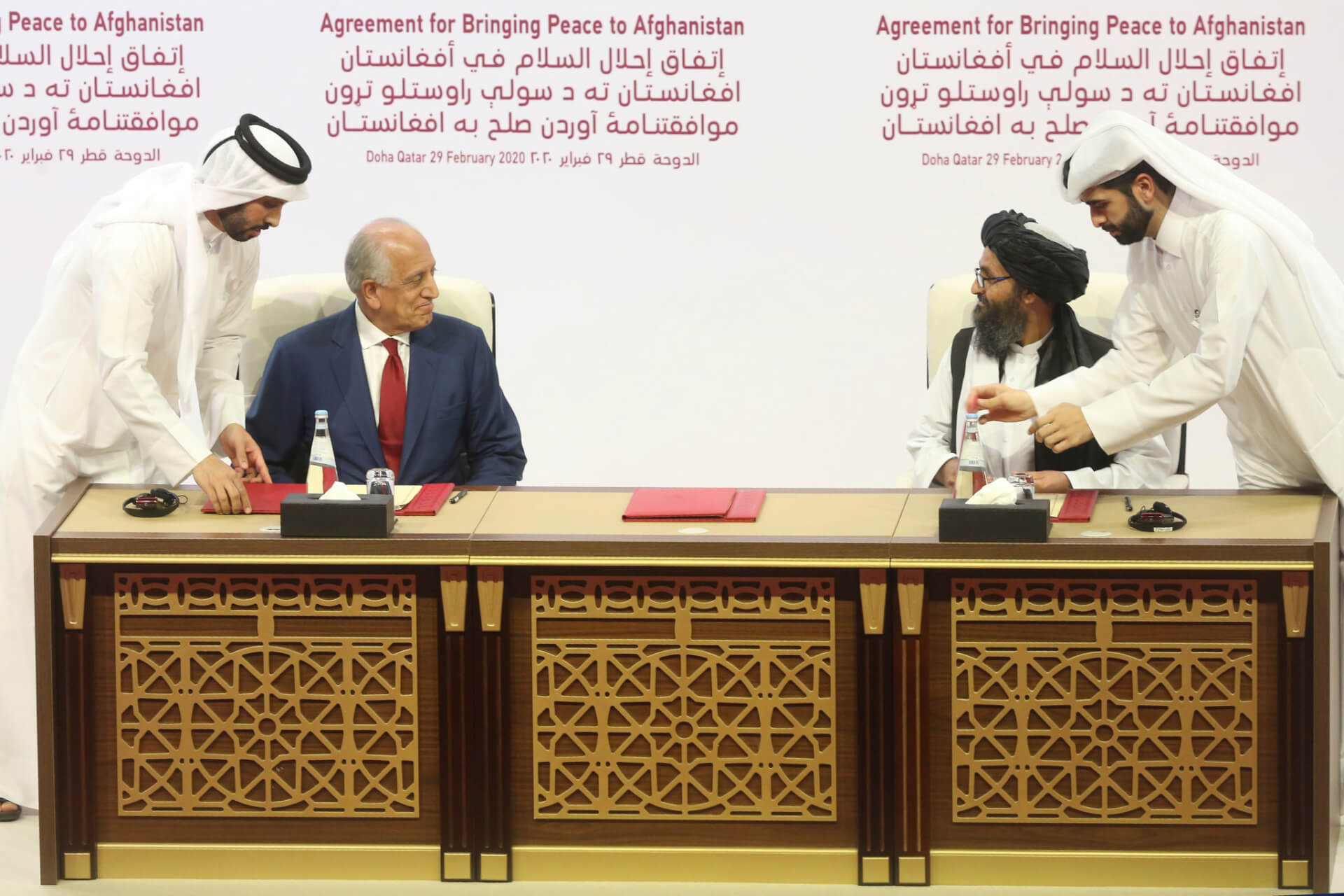As the two warring sides in Afghanistan, the Taliban and the Ashraf Ghani government, continue to engage in staggered peace negotiations, the United States (US) has renewed its efforts to expedite the talks.
To achieve this, the American side presented an eight-page draft peace agreement to the Taliban and the Ghani-led government. However, the exact contents of the document have not been disclosed. According to the US State Department spokesperson Ned Price, “It’s often important for our diplomatic efforts that we’re able to conduct them in private.”
According to the Associated Press, who received the text on Monday, the document laid down the terms of the ceasefire and the means to enforce it, called for protecting women, children, and minority communities in the country, and outlined a “truth and reconciliation” commission to further heal the wounds of the decades-long conflict. Further, the draft called for the complete removal of all military structures and personnel from neighbouring countries, specifically Pakistan, where the Taliban’s leadership has found refuge. In addition, it calls for reduced interference from the regional powers and Afghanistan’s neighbours.
The preamble of the draft called the proposal a “compilation of ideas and priorities” that are compatible with the entire political spectrum in Afghanistan. It says, “It sets forth principles for governance, security, and rule of law and presents options for power-sharing that could help the two sides reach a political settlement that ends the war.”
Additionally, the draft proposal calls for the establishment of a “peace government”, which would overlook the process of framing a new constitution and conducting elections. Further, it would comprise a judiciary and an executive branch, which would all operate separately, yet equally. The proposal also vows to protect the values and Islam and recommends setting up a High Council for Islamic Jurisprudence, which would operate separately from the judiciary. However, there is no timeline for the interim government, with the length of the government being marked “XX” in the document.
Mohammed Naeem, the spokesperson for the Taliban, said that they had received the American draft and were in the process of conducting an extensive review of the proposal. No comments have been made by the Ghani government on the issue. However, the adoption of the document is unlikely to be smooth, as Ghani has long spoken out against the idea of an interim government, saying that he would oppose it “as long as [he is] alive.” Nevertheless, several commentators continue to be optimistic about the proposal, with foreign Afghan government adviser, Torek Farhadi, saying, “The new peace plan offers a chance for a ceasefire, it offers a chance to bring the Taliban from the battlefield to the talks table to discuss thorny issues of religion and its role in [the country].”
In order to further push for an expedited conclusion of the peace process, US Secretary of State Antony Blinken wrote to President Ghani calling upon the warring parties in Afghanistan to work towards tangible progress in the negotiations. The letter, which was released by the Afghani TOLO TV, took an uncompromising tone and said, “I am making this clear to you so that you understand the urgency of my tone regarding collective work.”
In the letter, he reiterated the American side’s commitment to withdrawing its troops by the May 1 deadline set by the US-Taliban Peace Deal, and called for Ghani to show “urgent leadership.”. Furthermore, he pushed for a revised plan to ensure a reduction in violence within 90 days, followed by the declaration of a permanent ceasefire in accordance with the draft peace agreement.
While Ghani refused to comment on the letter, his first Vice President, Amrullah Saleh, said, “We are neither concerned about the letter nor has it changed our position.” He added that while Afghanistan was grateful for the American side’s support over the past 20 years, it would not succumb to such pressure. “We will make peace with dignity, but never .. an imposed peace”, he said.
Apart from discussing the peace process with the internal stakeholders in Afghanistan, the US has also been seeking to secure the support of its allies in the region. In this regard, earlier this week, American Special Envoy Zalmay Khalilzad, along with the head of American forces and NATO-led non-combat Resolute Support mission, General Scott Miller, visited Pakistan to meet the country’s Army Chief General Qamar Javed Bajwa. A statement released following the discussions said, “Matter of mutual interest, regional security, and ongoing Afghanistan Reconciliation Process were discussed in the meeting … The visiting dignitary greatly appreciated Pakistan’s role in the ongoing peace process.” Khalilzad also highlighted the critical role played by Pakistan in achieving peace in the region and called upon the country’s leadership to remain committed to the peace process.
Furthermore, in Blinken’s letter, he proposed a regional United Nations-led conference to be held in Turkey, which would see the participation of the US, India, Russia, China, Pakistan, and Iran. In this regard, he proposed a “unified approach” towards the peace process in Afghanistan.
US Presents Draft Peace Deal to Warring Sides in Afghanistan
Amidst the long-stalled peace process in Afghanistan, the US has renewed its effort to further peace in the region by presenting a draft peace deal.
March 9, 2021

SOURCE: ASSOCIATED PRESS
